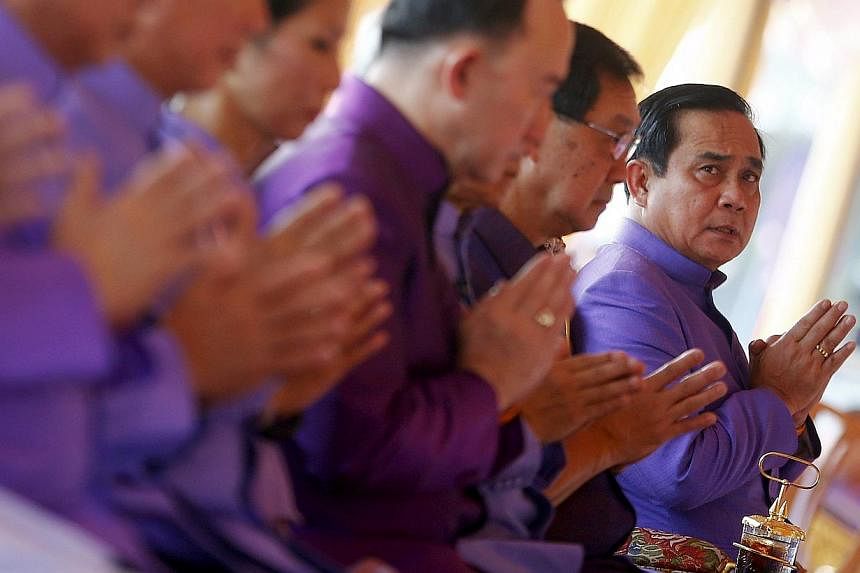THAILAND'S military government, heavily criticised for lifting martial law only to introduce even more draconian rules, argued yesterday that its source of power has roots in the French Constitution.
Article 44 of Thailand's interim Constitution, which grants junta chief Prayut Chan-o-cha absolute power, "is not new" in Thai politics and has been used six times in history, Deputy Premier Wissanu Krea-ngam pointed out in a briefing for foreign diplomats.
The first time Thailand's military rulers used a similar clause was in 1959, and they had drawn inspiration from the French Constitution, which grants power to the president in an emergency.
The Thais "copied it with some modification", he said.
The junta last Wednesday repealed martial law, which was imposed countrywide just before the military seized power in May last year. But it issued an order with similar restrictions: Political gatherings of more than five people remain banned unless approved by the junta.
Military "peace and order maintenance officers" appointed by the junta will have the power to summon those suspected of threatening national security or committing a crime against the monarchy, freeze their assets and detain them for up to seven days. They can conduct searches without a warrant.
They also have the power to ban the distribution of any news that "may cause panic to the public or information which is intentionally distorted to cause public misunderstanding that affects national security or public order".
The move drew a sharp response last week from the UN High Commissioner for Human Rights Zeid Ra'ad al-Hussein, who said: "In effect, this means the sweeping away of all checks and balances on the power of the government, rendering the lifting of martial law meaningless."
Under this order, civilians will continue to be tried in military courts if they endanger national security, violate the orders of the junta, or if they commit an offence against the monarchy.
Thailand's lese majeste law, which outlaws insulting or defaming the monarchy, carries a jail sentence of up to 15 years.
According Dr Wissanu, a legal expert who helped the junta craft the interim Constitution, more than 500 cases have been put before Thai military courts. Those tried in military courts will have access to a lawyer and the right to appeal, he said.
Asked how the junta's peacekeeping officers can be identified, he replied: "(For) those that are innocent, whether they are Thai or foreigners, there is nothing to be afraid of." Someone who is approached by the officers "can ask them to show their identification (papers)", he said.
Also, he claimed it was "not difficult to ask for permission" for a political gathering of more than five people. "Nothing in (the new order) is more radical than martial law or the internal security law," he said. In fact, "Article 44 itself can be constructive" to cut short lengthy procedures when dealing with urgent problems.
Thailand's airlines, for example, recently faced restrictions on new international flights after the International Civil Aviation Organisation flagged significant safety concerns about the oversight of this sector. General Prayut has said he will use Article 44 to accelerate improvement of aviation oversight.
The Ministry of Commerce has also asked the government to use its powers to speed up the development of special economic zones, Dr Wissanu revealed.

